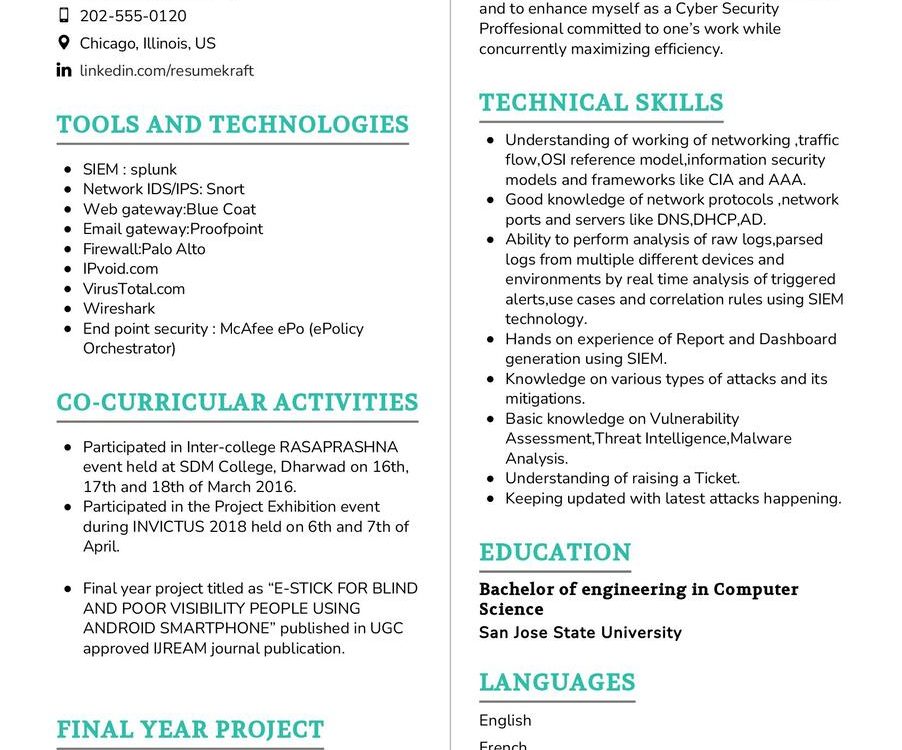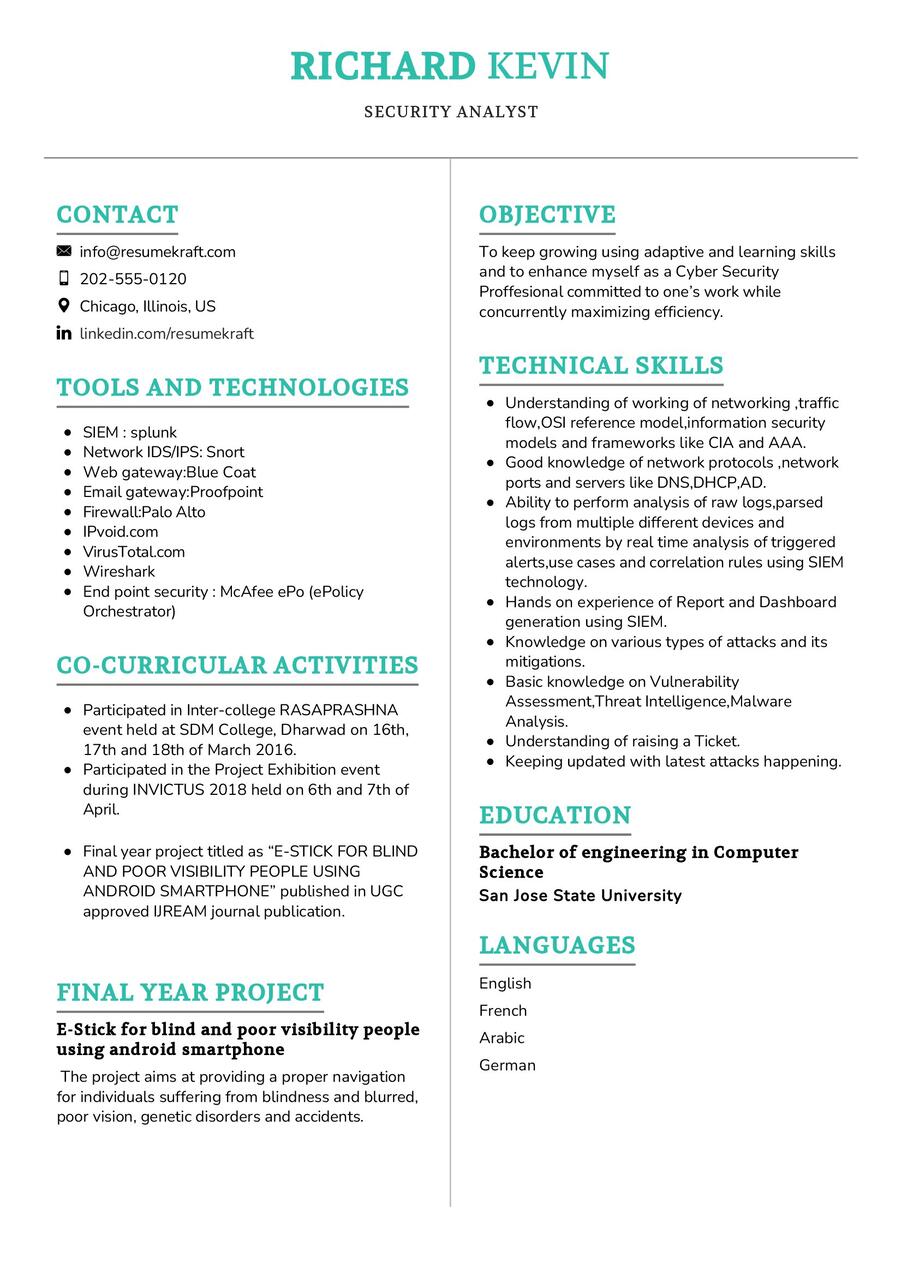The Crucial Role of a Security Analyst
In today’s digital age, the role of a Security Analyst is more critical than ever. As organizations navigate an increasingly complex cybersecurity landscape, the Security Analyst stands as a guardian of digital assets, ensuring the confidentiality, integrity, and availability of sensitive information. Let’s explore the multifaceted responsibilities and requirements that define the role of a Security Analyst, a position that demands a unique blend of technical prowess and strategic thinking.
Key Responsibilities of a Security Analyst
A Security Analyst plays a pivotal role in safeguarding an organization’s digital infrastructure from cyber threats. Their responsibilities encompass a wide array of tasks, each contributing to the overall security posture of the organization. Let’s delve into the key responsibilities of a Security Analyst:
- Monitoring and analyzing security alerts to identify and respond to potential threats.
- Conducting regular vulnerability assessments and penetration testing to identify and address weaknesses in the system.
- Implementing and managing security measures, including firewalls, intrusion detection systems, and antivirus software.
- Collaborating with IT and other departments to ensure compliance with security policies and regulations.
- Investigating security incidents, analyzing root causes, and recommending corrective actions.
- Providing security awareness training to employees to mitigate human-related security risks.
- Staying abreast of the latest cybersecurity trends and emerging threats to proactively enhance security measures.
The Security Analyst role is dynamic and requires adaptability to evolving cyber threats and technologies.
Requirements to Become a Security Analyst
Embarking on a career as a Security Analyst requires a solid foundation in cybersecurity principles and a diverse skill set. Here are the key requirements for individuals aspiring to become Security Analysts:
- A Bachelor’s or Master’s degree in Cybersecurity, Information Technology, or a related field.
- Strong knowledge of cybersecurity principles, protocols, and technologies.
- Experience in security analysis, incident response, and threat intelligence.
- Proficiency in using security tools and technologies, such as SIEM (Security Information and Event Management) systems.
- Certifications such as CompTIA Security+, Certified Information Systems Security Professional (CISSP), or Certified Ethical Hacker (CEH) can enhance your credentials.
- Excellent communication skills to convey complex security concepts to non-technical stakeholders.
- An analytical mindset and the ability to think critically in high-pressure situations.
Continuous learning and staying updated with the evolving cybersecurity landscape are integral to excelling in this role.
Day in the Life of a Security Analyst
Understanding the daily routine of a Security Analyst provides insights into the challenges and excitement of the role. Here’s a snapshot of what a typical day might look like:
John, a seasoned Security Analyst, starts his day by reviewing overnight security alerts. He analyzes the patterns and investigates any anomalies, ensuring a quick response to potential threats. After that, he conducts a vulnerability assessment on a newly implemented system, collaborating with the IT team to patch any identified weaknesses.
As the day progresses, John engages in a tabletop exercise, simulating a cyber attack scenario to test the organization’s incident response plan. In the afternoon, he leads a training session for employees, educating them on the latest phishing techniques and best practices to avoid falling victim to social engineering attacks.
Before wrapping up the day, John attends a webinar on emerging cyber threats, staying informed about the ever-evolving landscape. His day concludes with a comprehensive report on the day’s activities, contributing to the organization’s ongoing efforts to strengthen its security posture.
Building a Strong Security Analyst CV
Your CV is your professional narrative, showcasing your qualifications and experiences as a Security Analyst. Here are tips to craft a compelling Security Analyst CV:
- Highlight your educational background and any relevant certifications prominently.
- Showcase your hands-on experience with specific security tools and technologies.
- Detail your achievements in incident response, threat mitigation, or successful security implementations.
- Use metrics to quantify your impact, such as the percentage reduction in security incidents under your watch.
- Customize your CV for each application, emphasizing the skills and experiences most relevant to the specific job description.
Your CV is your gateway to opportunities, and a well-crafted document can significantly enhance your chances of landing a coveted Security Analyst position.
Security Analyst CV Summary Examples
Your CV summary is the first impression you make on potential employers. Craft a compelling summary that reflects your unique strengths as a Security Analyst:
- “Dedicated Security Analyst with a Master’s degree in Cybersecurity and over five years of experience in proactively identifying and mitigating security threats. Adept at implementing robust security measures to protect digital assets.”
- “Results-driven Security Analyst with a proven track record in vulnerability assessments and incident response. Skilled in translating complex security concepts into actionable strategies for diverse stakeholders.”
- “Experienced Security Analyst with a strong foundation in cybersecurity protocols. Proficient in conducting penetration testing and developing comprehensive security solutions.”
Your CV summary sets the tone for the rest of your CV, so make it impactful and tailored to your unique strengths.
Education Section for Your Security Analyst CV
Listing your educational background is crucial in showcasing your expertise and commitment to the field. Here’s how you can structure your education section:
- Master of Science in Cybersecurity, XYZ University, 2016.
- Bachelor of Science in Information Technology, ABC University, 2014.
- Certified Information Systems Security Professional (CISSP), 2017.
Your education section should reflect your academic journey and any relevant certifications that bolster your qualifications.
Skills Every Security Analyst Should Possess
Your skill set is the arsenal you bring to the table as a Security Analyst. Here are the essential skills every Security Analyst should possess:
Soft Skills:
- Analytical thinking, crucial for identifying and mitigating security risks.
- Communication skills to convey complex security concepts to non-technical stakeholders.
- Attention to detail in analyzing logs, incidents, and security alerts.
- Team collaboration to work effectively with IT, management, and other departments.
- Problem-solving abilities to address security challenges proactively.
Technical Skills:
- Proficiency in using SIEM systems for security monitoring and analysis.
- Experience with penetration testing tools and techniques.
- Familiarity with firewalls, antivirus software, and other security technologies.
- Knowledge of cybersecurity frameworks and best practices.
- Understanding of encryption protocols and technologies.
Each skill is a pillar supporting your effectiveness as a Security Analyst, contributing to a robust cybersecurity defense.
Common Mistakes to Avoid in Your Security Analyst CV
As you craft your CV, steer clear of common pitfalls that could diminish its impact. Here are some mistakes to avoid:
- Avoid using generic terms; instead, tailor your CV to highlight your specific achievements and experiences.
- Don’t merely list your job duties; showcase your accomplishments and the impact you’ve had in previous roles.
- Include a cover letter, as it provides an opportunity to convey your passion for cybersecurity and your unique fit for the role.
- Balance technical jargon; ensure your CV is accessible to both technical and non-technical readers.
- Thoroughly proofread your CV to present a polished and professional image.
Avoiding these common mistakes will help ensure your CV stands out in a competitive job market.
Key Takeaways for Your Security Analyst CV
As we conclude this comprehensive guide, remember these key takeaways to create a standout Security Analyst CV:
- Emphasize your hands-on experience and achievements in cybersecurity.
- Showcase specific skills and tools you’ve mastered in the field.
- Quantify your impact with metrics to highlight the effectiveness of your security measures.
- Customize your CV for each application to align with the specific job requirements.
Crafting a compelling Security Analyst CV is the first step toward a successful career in cybersecurity. Utilize these insights and tips to create a document that not only reflects your expertise but also captivates potential employers. Your CV is more than just a document; it is your professional story, so make it a compelling one. Best of luck!
Finally, feel free to utilize resources like AI CV Builder, CV Design, CV Samples, CV Examples, CV Skills, CV Help, CV Synonyms, and Job Responsibilities to create a standout application and prepare for the Security Analyst job interview.


